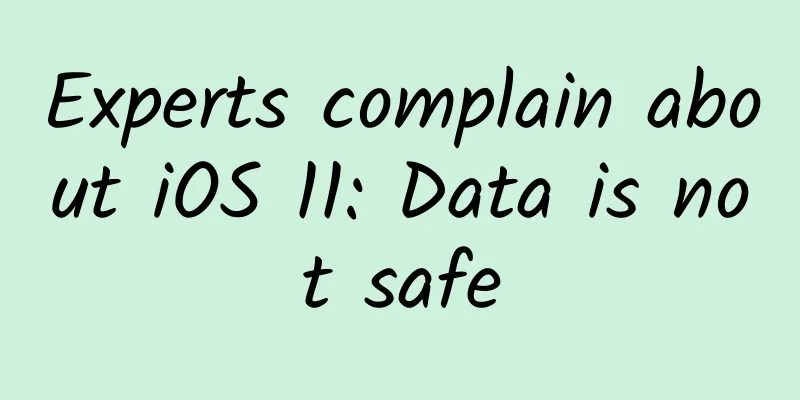The whole story of the lawsuit between Tencent and Qihoo 360

|
The dispute between 360 and Tencent has finally come to an end, and the court has finally ruled that Tencent won the case. As time goes by, we can no longer remember why this four-year marathon Internet first case started, but it has definitely come to an end. Regardless of the outcome, it has had a certain impact on the Internet industry and the judiciary. Let me briefly review the beginning and end of this matter for you. background Tencent QQ and Qihoo 360 were the two largest client software in China at that time. Tencent has developed in all aspects based on QQ. With its strong market share, powerful customer base, and the resource that almost everyone has a number, it has continued to develop and engulf all areas of the Internet. Qihoo 360 is a well-known company for its security. Its 360 Security Guard is always free, which has enabled it to occupy the vast majority of the security market share in a very short period of time and become the second largest client software after Tencent. According to official data, the number of active accounts of Tencent's instant messaging service reached 612.5 million by 2012. With its huge user base and natural client resources, Tencent has gradually extended its business to many areas of the Internet, including online games, news portals, e-commerce, email, audio and video, and broadcasting, etc., all of which have seized a large market advantage, which makes people have to sigh at Tencent's great expansion power. In July 2006, 360 launched the "360 Security Guard" software, which focuses on Internet security. In less than a year, it became the largest security software in China. According to official data, its number of users has exceeded 300 million, covering more than 75% of Chinese Internet users, becoming the second largest desktop client software in China. Based on this client, 360 has extended its free anti-virus software, browser and other products, all of which have been successful. For their own interests, the two sides launched an unprecedented Internet war. progress Phase 1 In 2010, Tencent launched the 1.0 Beta version of QQ Doctor. For a long time afterwards, it was only used as a tool to detect and kill Trojans. Then, QQ Doctor 3.2 was launched, with an interface and functions similar to 360. At the same time, it announced that Norton Antivirus software would be given away for a six-month trial. After that, QQ Doctor was forcibly promoted during the Spring Festival. 360 was sensitive and quickly realized the threat posed by QQ Doctor. Some employees who were on vacation were urgently recalled to deal with this emergency. 360 responded quickly, and QQ Doctor was hastily launched even though the product itself was not mature. Many users uninstalled QQ Doctor, and its market share quickly dropped to below 10%. 360 became the winner of this battle. [2] Phase II On May 31, 2010, Tencent quietly upgraded QQ Doctor to version 4.0 and renamed it "QQ Computer Manager". The new version of the software combines QQ Doctor and QQ Software Management into one, adds cloud Trojan detection and plug-in cleaning functions, covers all the mainstream functions of 360 Security Guard, and the user experience is very similar to 360. Tencent's move caught 360 and Kingsoft off guard. Zhou Hongyi posted more than 40 messages on Weibo, revealing the years of grievances between 360 and Kingsoft, and Kingsoft responded strongly. The two companies then sued each other, and the war of words and lawsuits continued. At this time, Tencent's move caught 360 off guard. In an exclusive interview, Zhou Hongyi suggested that Tencent should increase investment to solve the internal security problems of QQ. Phase 3 During the Mid-Autumn Festival in 2010, "QQ Software Manager" and "QQ Doctor" were automatically upgraded to "QQ Computer Manager", which covers cloud Trojan detection, system vulnerability patching, security protection, system maintenance and software management, which are also the mainstream functions of 360 Security Guard. With QQ's huge user base, QQ Computer Manager will directly threaten 360's survival in the security field. On September 22, 2010, many netizens reported that a "QQ Computer Manager" icon suddenly appeared on their desktops and would automatically start when they turned on their computers. This was the second large-scale mandatory installation of QQ after the mandatory installation of QQ Doctor during the Spring Festival in 2010. With QQ's huge user base, QQ Computer Manager will directly threaten 360's survival in the security field. [3] On September 27, 2010, 360 released a "privacy protector" tool that was aimed directly at QQ, claiming that it could monitor QQ's behavior in real time and remind users that "a certain chat software" was peeping at users' personal privacy files and data without their permission. This caused netizens to worry and panic about the QQ client. Stage 4 On October 14, 2010, in response to the QQ spying incident exposed by 360 Privacy Protector, Tencent officially announced that it would sue 360 for unfair competition, demanding that Qihoo and its affiliated companies stop infringing, make a public apology and pay compensation. The court has accepted the case. In response to Tencent's lawsuit, 360 immediately responded with three points and stated that it would file a counter-suit. In its response, 360 said, "Tencent has always avoided snooping into user privacy in response to questions raised by all walks of life. In addition to retaliation, it is possible that the lawsuit against 360 is intended to divert attention and avoid external questions." Stage 5 On October 27, 2010, Tencent published a joint statement against 360's unfair competition and strengthening industry self-discipline. The statement was jointly issued by Tencent, Kingsoft, Baidu, Maxthon, and Kenu, requiring the competent authorities to resolutely stop 360's unfair commercial competition and conduct a thorough investigation into 360's malicious intimidation and deception of users. On October 29, 2010, 360 launched a security tool called "360 QQ Bodyguard". 360 said that the tool fully protects the security of QQ users, including preventing QQ from viewing user privacy files, preventing Trojans from stealing QQ, accelerating QQ, filtering advertisements, etc. The number of downloads exceeded 20 million within 72 hours, and it is increasing rapidly. Tencent made a strong statement on this, saying that 360 QQ Bodyguard is a "hack". Stage 6 At 6:00 pm on November 3, 2010, Tencent announced in an open letter that it would A letter from Tencent to netizens Stop running QQ software on the computer and advocate uninstalling 360 software before logging into QQ. This is the most drastic action taken by Tencent so far in a series of disputes between 360 and Tencent. This move has caused shock in the industry and angered netizens. The industry believes that Tencent's move is to force users to make a choice between two options. According to 360 CEO Zhou Hongyi, 60 million users of 360 software have been forced to uninstall. Around 9:00 pm on November 3, 2010, 360 responded by saying that it would "guarantee that 360 and QQ run at the same time." Then, the "QQ Bodyguard" software of 360 was quietly removed from its official website. On the 4th, 360 issued an open letter saying that it was willing to put aside the dispute and restore peace to the Internet. 360 QQ Bodyguard was officially removed from the official website. Under the strong intervention of relevant state departments, QQ and 360 have begun to restore compatibility. On the morning of November 4, 2010, 360 issued a pop-up notice announcing the recall of "QQ Bodyguard" and requesting users to uninstall it. This move seemed to be a sign of reconciliation. Stage 7 Vice President Liu Jun confirmed that the Ministry of Industry and Information Technology's Communications Security Bureau and the Ministry of Public Security have already intervened in the matter and approached the two companies on the 4th to inquire. On the morning of November 5, 2010, the Ministry of Industry and Information Technology, the Internet Society and other departments held a meeting to discuss the matter. 360 Open Letter The government has intervened and issued an administrative order to require both parties to stop the dispute. According to insiders, 360 also announced the recall of the "QQ Bodyguard" software under this situation. The two companies are not allowed to release news and information that incite this matter. Stage 8 Qihoo 360 announced on November 10, 2010 that QQ and 360 had restored compatibility, and published a notice on its official website titled "QQ and 360 have restored compatibility, thank you!", thanking users for their support of 360 software, publishing the contact information of relevant departments, and reminding users to report any conflicts between the two software to relevant departments. Tencent issued an apology letter titled "Together with You" on November 21, 2010. The conflict between the two parties was formally resolved with the intervention of the Ministry of Industry and Information Technology. Stage 9 On the afternoon of November 11, 2010, Sina Corporation and MSN China held a press conference to jointly announce that Sina and MSN China have signed a strategic cooperation agreement and formally reached a strategic partnership. According to the cooperation agreement, Sina and MSN will carry out all-round strategic cooperation in many fields, covering microblogs, blogs, instant messaging, information content, wireless and other aspects. 360 defamation of Tencent case Prosecution On October 14, 2010, in response to the QQ snooping incident exposed by 360 Privacy Protector, Tencent officially announced that it would sue 360 for unfair competition, demanding that Qihoo and its affiliated companies stop infringing, make a public apology and make compensation. first instance In April 2011, the Chaoyang District Court of Beijing made a first-instance judgment on the case, finding that 360's fabrication of facts had damaged Tencent's competitive advantage and constituted unfair competition, and ordered Qihoo to pay 400,000 yuan in compensation. Second trial On September 29, 2011, the Beijing Second Intermediate People's Court announced the final judgment of Tencent's lawsuit against the "360 Privacy Protector" infringement case: the actions of Beijing Qihoo, Qizhi Software and Sanji Unlimited constituted unfair competition, and the three companies were ordered to stop infringing; the three companies were required to publish a public statement on the homepage of the 360 website and the "Legal Daily" within 30 days from the effectiveness of this judgment to eliminate the impact, and compensate the plaintiff Tencent for economic losses of 400,000 yuan. [5] Tencent v. Qihoo 360 Unfair Competition Case Prosecution In August 2011, Tencent filed a lawsuit with the Guangdong High Court, claiming that Qihoo 360's "QQ Bodyguard" was under the guise of protecting user interests, slandering, destroying and tampering with the functions of Tencent's QQ software, and through false propaganda, encouraging and inducing users to delete the value-added service plug-ins in the QQ software, blocking the plaintiff's customer advertisements, and embedding its products and services into the QQ software interface, taking the opportunity to advertise and promote its own products. It claimed 125 million yuan in damages. [6] first instance On April 25, 2013, the Guangdong Provincial High People's Court made a first-instance judgment on the case, finding that Qihoo had engaged in unfair competition and ordered it to compensate Tencent for economic losses and reasonable rights protection costs of RMB 5 million. After the verdict was announced, Qihoo issued a public statement expressing its deep regret for the verdict and decided to appeal to the Supreme People's Court. Second trial On December 4, 2013, the First Court of the Supreme People's Court held an open trial of the case. On April 24, 2014, the court made a second-instance judgment, rejecting Qihoo 360’s appeal and upholding the first-instance court’s judgment that Qihoo had engaged in unfair competition and ordered it to compensate Tencent for its economic losses and reasonable rights protection costs of RMB 5 million. [6] Qihu v. Tencent Abuse of Market Dominance Case Prosecution In November 2012, Qihoo filed a lawsuit with the Guangdong High People's Court, accusing Tencent of abusing its dominant market position in the instant messaging software and service-related markets and demanding compensation of RMB 150 million. first instance On March 28, 2013, the Guangdong High Court ruled at first instance that Tencent did not constitute a monopoly and Qihoo was required to bear litigation costs of RMB 790,000. This was the first judgment in China to identify monopoly behavior in the field of instant messaging. Qihoo Company expressed dissatisfaction and appealed to the Supreme Court, seeking compensation for economic losses of 150 million yuan. QQ Doctor upgraded to QQ PC Manager Second trial On November 26, 2013, the First Court of the Supreme People's Court opened a hearing on the case of Qihu suing Tencent for "abuse of market dominance". The trial lasted two full days. At the end of the trial, the appellant and the respondent still refused to give in and insisted on their respective claims. It is worth noting that during the trial, the Supreme People's Court broadcast the trial process live in the form of "all media" such as TV live broadcast, radio link, and online live broadcast, which aroused social attention. It is reported that this is the first time that a civil case heard in public at the second instance of the Supreme People's Court has been reported in the form of "all media", which is the latest move of the Supreme People's Court to promote judicial openness and satisfy the public's right to know. On the morning of October 16, 2014, the Supreme People's Court issued a final verdict on the monopoly case between Qihoo 360 and Tencent. In the end, the Supreme People's Court ruled that Tencent's QQ did not have a dominant market position, rejected Qihoo 360's appeal, and upheld the judgment of the first instance court. |
<<: Cocos Autumn Developer Conference convenes industry leaders to discuss mobile game trends
>>: Be the best or nothing: Touchscreen CEO Chen Haozhi's ambition
Recommend
Guangdiantong information flow advertising delivery model
Tencent has two major information flow platforms,...
OpenAI & MIT: Research shows that frequent ChatGPT users feel more lonely
Two studies conducted by OpenAI and MIT Media Lab...
From the perspective of product, operation, and business model, what kind of product can be called a good product?
Today we are going to talk about this old questio...
Ezhou SEO training: page template updates, 404 page usage and redirection issues are all Xiong Zhanghao page transformation comparison
When configuring the Xiong Zhang account, you fir...
How to take the high-speed rail? How to see a doctor? A practical guide for beginners →
"What if someone needs it?" Blogger Xia...
Get serious "C4D case comprehensive teaching"
This course provides comprehensive teaching of C4D...
Musk: Tesla Autopilot will be fully autonomous "soon"
According to foreign media reports, Tesla CEO Elo...
The woman kept coughing and coughing up blood. The culprit was this... You may also have it at home
Reporter recently According to the Third Affiliat...
Qualcomm has bullied Intel with Win 10, so Intel really doesn't plan to fight back?
On December 8, at the Windows Hardware Engineerin...
Money comes in but cars are not produced: Internet car companies are in trouble
Since the beginning of this year, Tesla, the worl...
How harmful is it to your body to always drink energy drinks? After reading the ingredient list, do you still dare to drink them?
Do you have friends around you who love to drink ...
World Autism Day: Caring for “Children from the Stars”
They live among us But I have a heart that can on...
New broadband players may disrupt the pricing structure
The broadband market has become less peaceful sin...
CINNO: China's consumer VR product sales increased by 1% year-on-year in the second quarter of 2023
In Q2'23, the sales volume of domestic consum...
iOS 8.1.1 released: Improved iPad 2 and iPhone 4s performance
After two weeks of testing, Apple released the of...





![[A Fun Anatomist] Can’t wink? You can always blink!](/upload/images/67f22fedacafb.webp)



